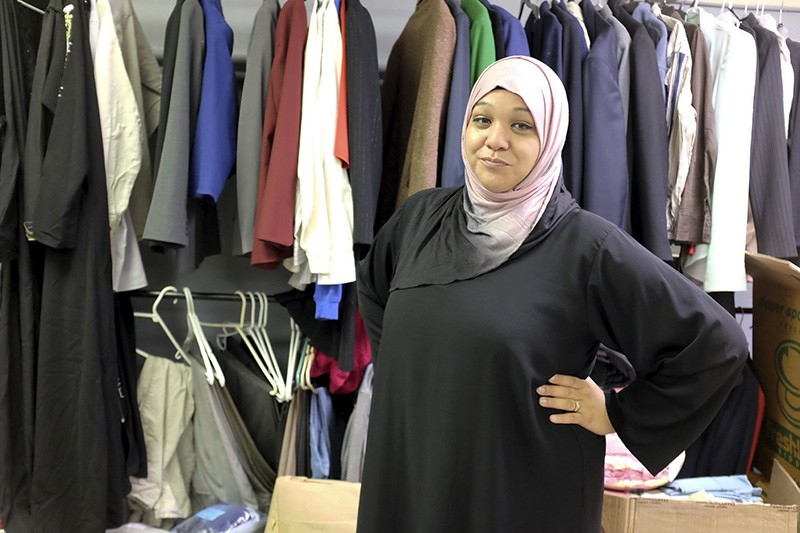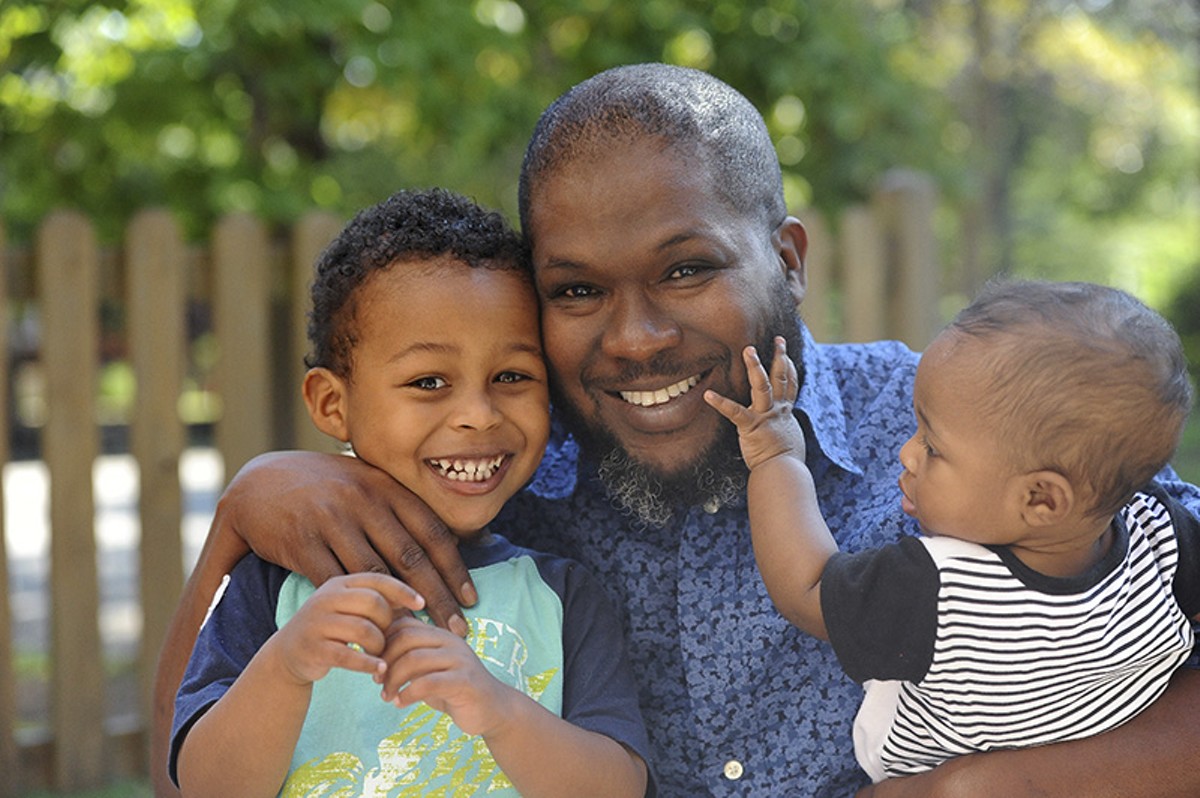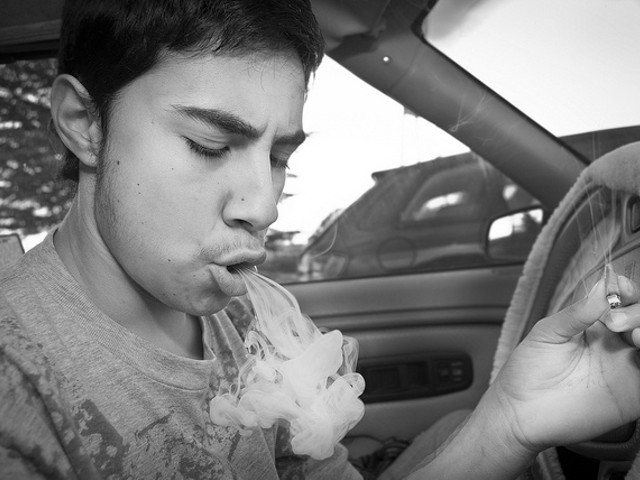
On a sunny Tuesday in mid-August, Grozdanic, wearing a head scarf and cheerful pink blouse, drops in on the Shaker-Saleh family, who came to St. Louis from an area of Syria that borders Iraq in July 2015. They live on the top floor of a duplex in Bevo Mill. It's much different than their first apartment in the city, which was on a rough stretch of Oregon. They moved after just three months, once their time with the International Institute was up.
Thirteen-year-old Goran, the younger of the family's two children, opens the front door with a big smile. On the landing leading up to their flat are cubbies for shoes before the final ascent up to their door. Goran opens it to reveal behind him a beaming Amina, his twenty-year-old sister. Bubbling with excitement, Amina and Grozdanic embrace like relatives at the holidays after a long separation.
There is a spacious living room, and Amina, Grozdanic and the siblings' mother, Samila Saleh, settle in an L-shaped Arabic-style sofa with flat cushions on the floor. The room also has another Western-style sofa that Goran perches on. Later, Mohammad Saleh will join and sit quietly in an armchair in the front room, smoking a cigarette.
The Shaker-Salehs are one of the first families who have been with House of Goods since the warehouse opened last year, which means they've spent a lot of time with Grozdanic. "So much so now that we all love each other and look at each other like we are family," she says.
The organization is responsible for the vast majority of what's in their apartment, and now they give back to the organization in turn: Amina visits families with Grozdanic, acting as a sort of interpreter, while Goran and his father volunteer at the warehouse.
Grozdanic is recently back from vacation in Florida, and Amina says that the separation felt like a year, even though Grozdanic video-conferenced with the entire family each night she was away.
"I say, 'Lisa, what day are you back?'" Amina says, laughing. "She say, 'Maybe tomorrow, maybe today.' I say, 'Every day you changed. Why do you change? No more ... back please!'"
When she was living in Syria, Amina was studying to become an Arabic language teacher. Her plans have changed now that she's in a place where Arabic isn't widely offered as a language, much less in the context of a teaching program. But she's looking to community college, and after that, her hopes are set on medical or law school.
The family dealt with culture shock upon arrival. They'd heard there wasn't a Muslim community here — nowhere to pray, no facilities or programs. But Amina says that it's been easy to bond with the community. Ramadan is a time that naturally brings people together.
One of the biggest hurdles for refugees, Grozdanic says, is the dissonance between the America they heard about — a Hollywood-glazed, romantic one where the path to resettlement is easy and the poetry writ under the Statue of Liberty looms large — and the America they arrive in. For those yanked out of everything familiar, who would not necessarily have left their homes but for the crisis driving them out, and who are dealing with the psychological repercussions of that jolt, the on-the-ground reality exacerbates the culture shock.
"Probably every home visit that we've ever gone onto, most of the mothers are crying because ... I guess because they're painted a pretty picture, that when they get here they're going to get this and they're going to get that, and when they get here, they get a very small apartment with table and chairs," says Grozdanic.
She and Amina visited a woman who had recently arrived from Jordan. "The first time I met her she was crying and screaming, 'Send me back to Jordan, please!'" Grozdanic says.
"She say ... 'I don't like living here. Everything bad,'" adds Amina.
Grozdanic's goal is to help them understand that the first apartment is just temporary. "You're safe here," she tells them, asking for patience. "You have a bed to sleep in. If you're sitting on the floor, OK— they'll get everything they need slowly."
Amina also helps new arrivals bridge the culture shock. She explains to refugees taking stock of empty apartments and navigating new systems what her family had when they came — and what they have now.
"Amina gives them the example of [her family's] life," says Grozdanic. "How they first moved here and how they didn't go out of the house, and how they didn't want to eat anything, and how they were so confused."
The woman from Jordan received items from House of Goods in the two weeks since Grozdanic and Amina's first visit. "She was hugging me and kissing me," says Grozdanic. "Thanking me. It was totally different."
Younger refugees tend to be Americanized fairly quickly upon arrival, she says. Amina and Goran are great examples. Amina spoke very little English when she arrived, Grozdanic says, but now look: She acts as a translator.
Goran has crossed cultural bridges in other ways: When he speaks English, his soft Syrian accent is now tinged with vowels pronounced like an English-speaking Bosnian. "I can tell the difference from first meeting them to seeing them now, talking with them now," Grozdanic says.






